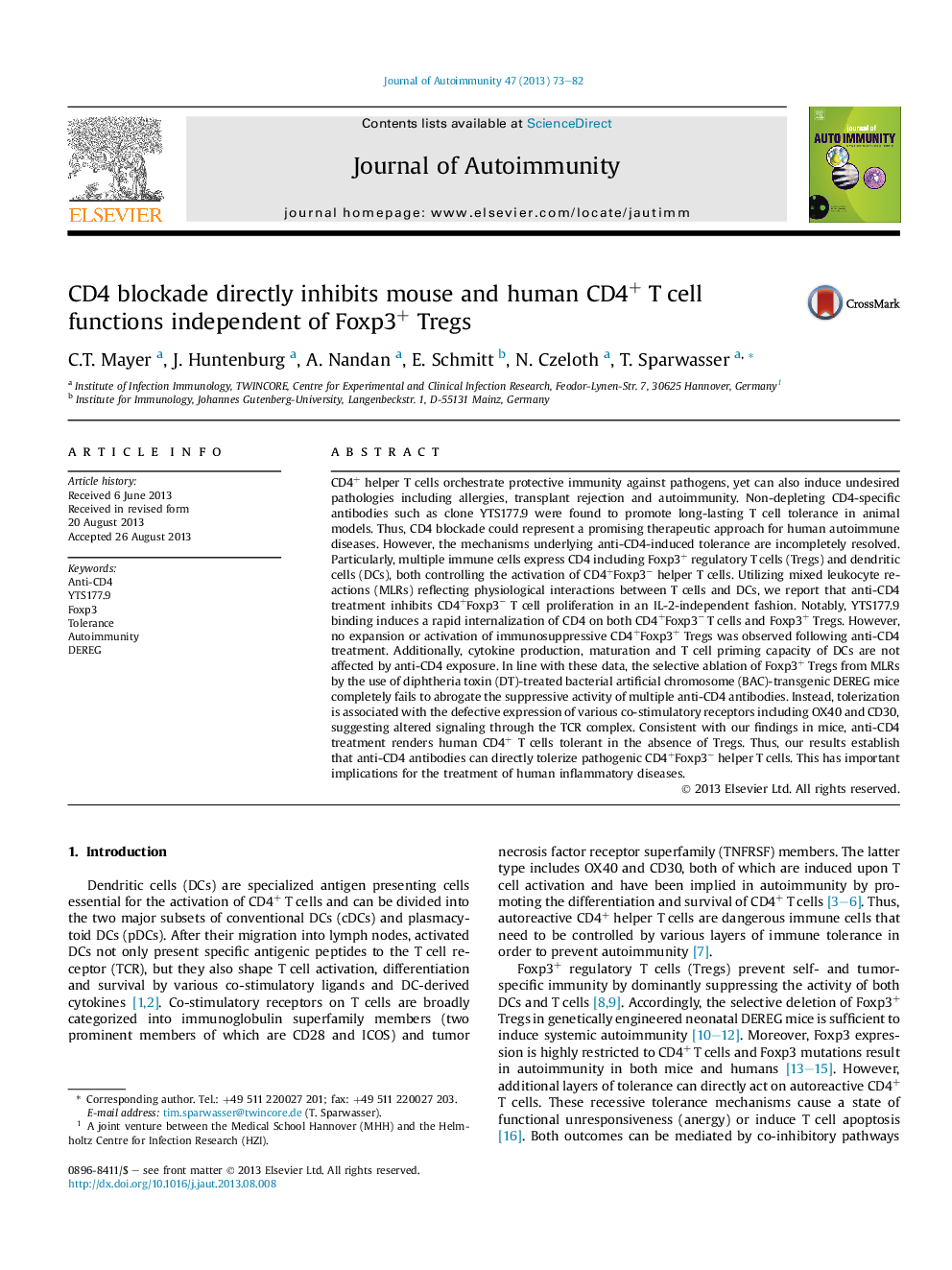| Article ID | Journal | Published Year | Pages | File Type |
|---|---|---|---|---|
| 3367818 | Journal of Autoimmunity | 2013 | 10 Pages |
•Anti-CD4 downmodulates CD4 on both Tregs and helper T cells.•CD4 blockade induces tolerance independent of Foxp3+ Tregs.•Dendritic cell functions are not affected by anti-CD4 treatment.•Tolerized T cells express lower levels of OX40 and CD30.•Human T cells are tolerized by CD4 blockade in the absence of Tregs.
CD4+ helper T cells orchestrate protective immunity against pathogens, yet can also induce undesired pathologies including allergies, transplant rejection and autoimmunity. Non-depleting CD4-specific antibodies such as clone YTS177.9 were found to promote long-lasting T cell tolerance in animal models. Thus, CD4 blockade could represent a promising therapeutic approach for human autoimmune diseases. However, the mechanisms underlying anti-CD4-induced tolerance are incompletely resolved. Particularly, multiple immune cells express CD4 including Foxp3+ regulatory T cells (Tregs) and dendritic cells (DCs), both controlling the activation of CD4+Foxp3− helper T cells. Utilizing mixed leukocyte reactions (MLRs) reflecting physiological interactions between T cells and DCs, we report that anti-CD4 treatment inhibits CD4+Foxp3− T cell proliferation in an IL-2-independent fashion. Notably, YTS177.9 binding induces a rapid internalization of CD4 on both CD4+Foxp3− T cells and Foxp3+ Tregs. However, no expansion or activation of immunosuppressive CD4+Foxp3+ Tregs was observed following anti-CD4 treatment. Additionally, cytokine production, maturation and T cell priming capacity of DCs are not affected by anti-CD4 exposure. In line with these data, the selective ablation of Foxp3+ Tregs from MLRs by the use of diphtheria toxin (DT)-treated bacterial artificial chromosome (BAC)-transgenic DEREG mice completely fails to abrogate the suppressive activity of multiple anti-CD4 antibodies. Instead, tolerization is associated with the defective expression of various co-stimulatory receptors including OX40 and CD30, suggesting altered signaling through the TCR complex. Consistent with our findings in mice, anti-CD4 treatment renders human CD4+ T cells tolerant in the absence of Tregs. Thus, our results establish that anti-CD4 antibodies can directly tolerize pathogenic CD4+Foxp3− helper T cells. This has important implications for the treatment of human inflammatory diseases.
